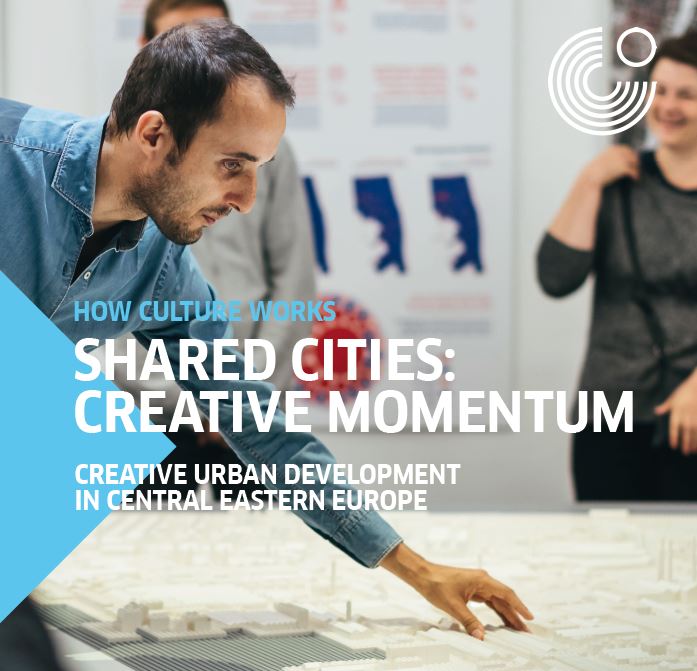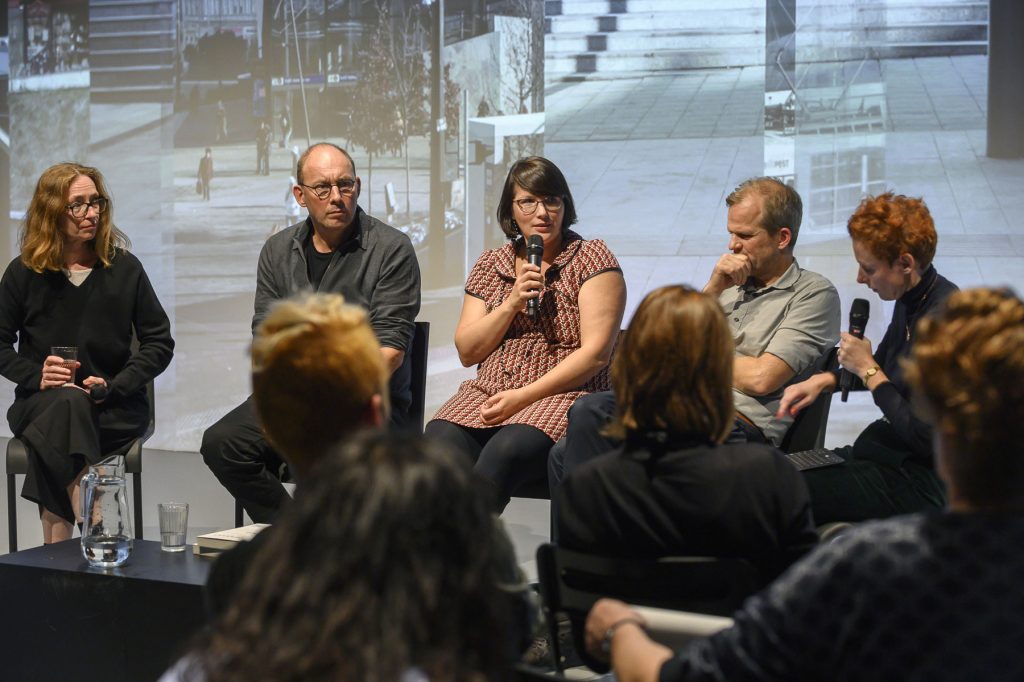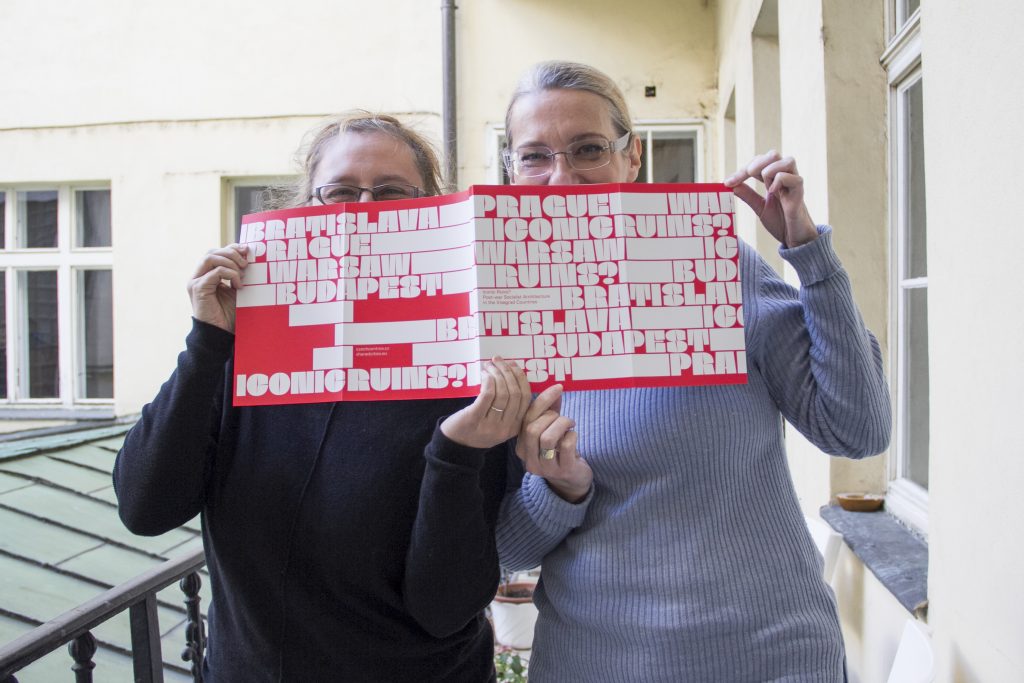
How Culture Works
"DOES EVERYTHING ALWAYS HAVE TO BE ASSESSED?" No. But when cultural work is financed with public funds, there is a necessity to evaluate.
Prague Permanent linkI consider it to be reasonably safe to say, human societies are not mere products of biological determinism. As the most basic supporting argument, let???s borrow the sociological metaphor of agency, or ???free will???. Were human beings just biological automata, there wouldn???t be such a thing as the capacity of individuals to make free choice and to act independently.
Let me also argue against biological determinism by reminding the reader that biological determinism has always been associated with such lovely inventions like eugenics, scientific racism, the notion of heritability of IQ, etc. Since this is not a properly rigorous scientific paper, but a popular article, which is supposed to be reasonably short, I dare say ???Quod Erat Demonstrandum???, henceforth I consider biological determinism to be completely discredited. This, in turn, allows me to assert that human beings do have free will.
Agency takes part in the self-identification of people and human societies. For self-identification, we like to use the term ???identity???, or ???national identity???.?? Arguably this is a set of beliefs about self and others who constitute the community (the nation) together with ???me???. Note: This is something quite different than nationalism, by the way. To constitute a community, the identity must be shared, and stored in one???s memory. Human memory is a sneaky trickster though. It works reflectively with the artifacts human beings produce. It is constructed in social interactions with self, with others, but also with the artifacts we create. Cars, furniture, paintings, literary works, buildings, streets and neighbourhoods, but also with language or ideas. Who says the artifacts must be physical, anyways?
I hope I won???t be accused of committing a fallacy, when I summon the all-encompassing notion of sharing in today???s world (at least in what we consider the Western Civilisation). To share something means (more often, than not), to post something on Facebook, Instagram, or other digital tool at hand. I wouldn???t go as far as to argue that Facebook posts construct the imagined communities of Berger???s and Luckman???s, that???s for another debate. But I would go as far as to say, the digital tools constitute virtual imagined communities. You could object, these communities and social worlds are really just virtual. They are not real, they are highly biased and edited. Everyone would want to be seen as beautiful, smart, and successful, if only in the photos, right?. Also nobody here really believes these redacted worlds or lives by them.
Well, I would argue otherwise. Heck, in Japan, the terms ???otaku??? and ???hikikomori???, describe people who isolate themselves physically from society, in their homes, for prolonged periods of time. But these people have a very vivid social life on the digital highways, until their physical bodies die, lonely in their flats, sometimes they aren???t found until ??? well, very late into the decomposition of their bodily fluids. These Japan pioneers do, to an extent, really live in the digital worlds. Are their worlds real or not? And who are we to say? They surely share a common identity with their pars, be it in WoW, LoL, EVE Online, or whatever you have. They even co-create realms, corporations, secret societies within these virtual worlds (at least until the game publisher decides to pull the plug).
This slowly leads me to the point of this little rant of mine. These virtual worlds some of us decide to live in, really exist. They existed even before Facebook, Youtube, and massively-multiplayer-online games. We all took part in them, by watching the smart bombs falling with surgical precision on their targets. We saw it from the safe distance of our homes. And we didn’t have to see the victims. These worlds have always been shared. Only now they crystallized into the digital form. But how do these world emerge? They are created from the visuals their graphic designers derive from the real, physical world they were born into. The world the graphic designers internalize by interacting, by sharing and internalizing the cultural identity they live in, and by the process of ???othering??? everything and everyone else.
It has never been proven videogames (as the most prominent representative of the digital world), or any other redacted digital space shape the beliefs of people who play them. But it has been convincingly shown on several occasions, that by closely examining the digital realms we can learn a lot about ourselves. The way we construct the digital worlds, what representations we choose to use and which ones we omit, be it people of different ethnicities, homeless, women, religions. This is telling a lot. In other words, we can observe the shared and imagined identity here, since it permeates into the digital, as well as what we choose to exclude from taking part in the reality. It perfectly reflect our orientalist and other bias, religious belief, deeply-rooted convictions about ourselves and about others. It shows us what do we consider right or wrong, how things, or our cities, should be. Some even argue, transcending into the digital worlds is the future of transhumanism, but that???s for yet another debate.
A lot of data can be extracted from the digital worlds, and perhaps utilized. Let???s not underestimate them. In the end, we all share some sort of our digital community. We do enact our free will in it, we act independently in it, and we dream of digital sheep there; don???t we?
Kamil Pavelka, Goethe-Institut

"DOES EVERYTHING ALWAYS HAVE TO BE ASSESSED?" No. But when cultural work is financed with public funds, there is a necessity to evaluate.
Prague Permanent link
The one-day programme was based on discussion formats with renowned European architecture theorists, curators and urban researchers.
Prague Permanent link
Within Shared Cities: Creative Momentum the Czech Centres realized the "Iconic Ruins?" exhibition and an economic impact evaluation of the project. How does the future of the exhibition look like? What are the benefits of having an economic analysis of the project? Find the answers in the interview with Ivana ??ern?? and Sandra Kar??csony from the Czech Centres / ??esk?? Centra in Prague, Czech Republic.
Prague Permanent link